- Skip to main content

- All countries /
- Australasia /
- New Zealand /
- Travel and Hospitality /
- Travel and Tourism

16 Universities in New Zealand offering Travel and Tourism degrees and courses
More Information
Are you looking for Travel and Tourism courses? Here you can find course providers offering full-time, part-time, online or distance learning options.
You've reached your limit of 10 Favourites
Auckland University of Technology
THE World Ranking: 401
Lincoln University
University of canterbury.
THE World Ranking: 501
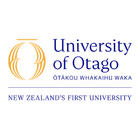
University of Otago
THE World Ranking: 301
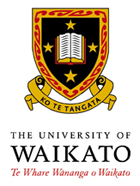
The University of Waikato
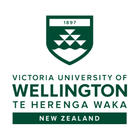
Victoria University of Wellington
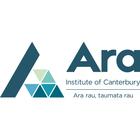
Ara Institute of Canterbury

Eastern Institute of Technology
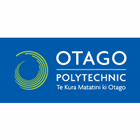
Otago Polytechnic

Southern Institute of Technology

Toi Ohomai Institute of Technology
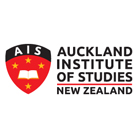
Auckland Institute of Studies
- Tourism Management
- New Zealand
- Bay of Plenty
- Hawke's Bay
- Study level:
- All study levels
- Postgraduate
- Undergraduate
- Career based/Vocational
- Study mode:
- Online/Distance
Filter your results
Tell us about you.
- Nationality Select country Select country
- My current qualification is from Select country Yes No Select country Select country
- Current qualification {0} is not applicable for the study level you selected below. Qualification Qualification
- Grade type (only one grade type for your qualification) Grade type Grade type
- My score (current or expected) Please select Please select Please select Please select Please select Please select
Tell us your preferences
- Subject Travel and Tourism
Qualification
- Destination New Zealand
- Study options
- Annual tuition fees
Subject areas
Destination.
- The UConn School of Business has grown to become one of the most comprehensive business schools in the country.
- NEW: Want to study in your home country for a foreign qualification? Find out more about cross-border study!

New Zealand Diploma in Tourism and Travel (Level 5)
Enter the work force as soon as possible..

New Zealand Diploma in Tourism and Travel (Level 5)
The new zealand diploma in tourism and travel (level 5) is a one-year qualification for students wanting to enter the work force as soon as possible. .
It comprises seven courses, and provides an entry-level basis for further study as part of a career development plan.
Study a Hospitality Management Diploma as a pathway into the Bachelor of Business
The Bachelor of Business has a Tourism and Hospitality Management study pathway and is designed to enable students to become problem-solving professionals who can adapt to a fast-changing world and make a meaningful contribution to society, locally and internationally.
Graduates of the New Zealand Diploma in Hospitality Management (Level 5) may have 120 advanced standing credits awarded towards the Bachelor of Business degree and graduates of the New Zealand Diploma in Hospitality Management (Level 6) may have an additional 120 advanced standing credits awarded towards the Bachelor of Business.
NZDTT (Level 5) NZQA Qualification Overview »
To enrol online for your preferred trimester, click on the start date below.
Programme Structure/Courses
The programme comprises seven courses, including:
- ACCT510 Accounting Systems and Processes
- BUSS510 Professional Skills
- BUSS511 Culture and Business in Aotearoa New Zealand
- MGMT510 Introduction to Management Dynamics
- MKTG510 Fundamentals of Marketing
- TOUR510 Principles of Tourism
- TOUR511 Tourism and Hospitality Business Information Systems
- TOUR512 Managing the Visitor Experience
Duration & Start Dates
Duration 3 semesters full-time
Start Dates in 2024 30 January, 20 May, 9 September
Trimesters and scheduled breaks: Trimester 1, 2024 - 30 January to 3 May Trimester 2, 2024 - 20 May to 23 August Trimester 3, 2024 - 9 September to 13 December
Entry Requirements
A minimum of 14 NCEA numeracy credits at Level 1 or higher and 50 credits at Level 2 or above with at least 12 credits in each of 3 subjects, including a minimum of 8 literacy credits at Level 2 or higher; or Tertiary study; or Successful completion of a Level 3 or Level 4 qualification in tourism and travel Equivalent overseas qualification; and IELTS 5.5 with no band below 5.0 / TOEFL iBT 46 (with a writing score of 14) / PToE academic score of 42 with no band lower than 36 / NZCEL L4; and 17 years and over
International Students
2024 Programme Fees: NZ$20,480 per 120 credits Resource Fees: NZ$1,104 Total: NZ$21,584 per 120 credits Plus a compulsory Student Services Fee of NZ$300 per year (or NZ$30 per month or part thereof).
2024 Programme Fees: NZ$4,360 per 120 credits Resource Fees: NZ$1,104 Total: NZ$5,464 per 120 credits Plus a compulsory Student Services Fee of NZ$300 per year (or NZ$30 per month or part thereof).
Note: International students from Pacific Island countries should contact Sione Fakapelea for tuition fee details:
Phone: +64 9 815 1717 ext 846 Email: [email protected]

This programme is eligible for a student loan from Studylink. Contact Studylink on 0800 88 99 00 or log on to www.studylink.govt.nz to apply for student finance.
Download AIS Prospectus

Siulua Tokilupe Latu
The thought of going overseas to study in New Zealand excited Siulua Tokilupe Latu and gave her the chance to gain a bachelor’s degree much faster...
The thought of going overseas to study in New Zealand excited Siulua Tokilupe Latu and gave her the chance to gain a bachelor’s degree much faster than if she’d stayed in Tonga.
The 31 year-old had previously enrolled with a South Pacific tertiary provider but with only two semesters on offer, and the number of papers she needed to complete to pass high school certificate before even starting undergraduate studies, it was going to take many years before she could graduate and find a meaningful job.
“I was desperate for education so hearing about AIS and that they offer three semesters was great news for me. I was so happy and relieved knowing that I could finish my studies in New Zealand and get a bachelor's degree from AIS quicker than if I studied at home.”
Siulua completed a one year tourism diploma at Tonga Institute of Higher Education (TIHE) before arriving in New Zealand. Receiving full transfer of credits, it then took 18 months to complete her Bachelor of Tourism Management. She says AIS was the “best experience” and the institute's Māori and Pacific Islands (MPI) Association gave her the chance to travel and attend conferences, competitions and leadership programmes around New Zealand.
“The experience I gained from these activities are memorable life lessons. To be part of welcoming different cultures to AIS and catering for them was the best experience I’ve had and taught me key skills about the tourism and hospitality industry.”
She particularly enjoyed studying at the AIS Asquith campus, saying her lecturers, heads of department and even security guards treated her like family. “The support they gave us was friendly and encouraging, especially during after hours study in the lab, exercising at the gym, relaxing at the cafeteria or in the atrium. Everyone was very supportive and caring.”
Siulua’s AIS degree helped her secure a sought-after government job when she returned home to Tonga. She is now a Planning Officer for the Ministry of Meteorology, Energy, Information, Disaster Management, Environment, Climate Change and Communications (known as MEIDECC for short). “The experience and skills that AIS taught me through presentation assignments, leadership roles and other opportunities helped. I managed to express myself during the interview and I think that’s why they chose me for a planner.”

Kalolaine Sikuvea
Kalolaine completed her Bachelor of Tourism Management at AIS in December 2012 and currently works at Pasifika Consulting, an Auckland-based employment...
Kalolaine completed her Bachelor of Tourism Management at AIS in December 2012 and currently works at Pasifika Consulting, an Auckland-based employment support agency, as an employment placement officer.
Originally from Nuku’alofa, Tonga, Kalolaine first got a taste of New Zealand education at a young age, while studying at Auckland Girls Grammar School. She later returned to Tonga and worked full-time as a check-in agent at Fua’amotu International Airport; this was her first ever job and her first exposure to customer service. While working at the airport, Kalolaine studied evenings at the University of South Pacific to complete her Diploma in Management Studies. To add to the busy schedule, it was around this time that she also started a family.
Having worked in customer service for four years, and having gained her management qualification, Kalolaine moved on to work as an office administrator for Nautilus Minerals Tonga, an underwater mineral exploration company headquartered in Toronto, Canada. Two years later, on work leave, she took her family to New Zealand for a vacation.
“That’s when we started thinking. We decided to continue on with my studies to have a better future not only for myself, but for my children and my family.”
Kalolaine enrolled at AIS in May 2011 by cross-crediting her previous qualification from the University of South Pacific. Her husband came along and worked in New Zealand to support her studies paying by instalments; the kids stayed back in Tonga and were looked after by her family. It wasn’t easy.
“I didn’t know I was going to make it. It was hard financially and emotionally.
“The supportive environment at AIS helped me strive and succeed in my studies; and thinking of my kids and my background is what encouraged me to do well.”
She studied BTM for one and a half years instead of the regular three thanks to cross credits.
“It was a good experience for me. I had previous customer service experience, but studying the BTM helped me develop my skills further. It enabled me to work better with customers and unlock my full potential.”
Upon graduating, Kalolaine began her search for work. This didn’t last long. Her cousin recommended that she apply for a position at Pasifika Consulting.
“I said, well, I’ll just give it a try.
“They called me the next day and told me to come in for an interview.”
She passed the interview stage. The next step was to give a presentation. Luckily, Kalolaine already had a lot of experience at AIS.
“I didn’t expect to have to give a presentation, but it was easy for me because of what I’d learned at AIS.
“It was the highlight of my interview. They hadn’t seen anyone with the skills and confidence that I had when I presented, and I got the job.
“When I talked with the interviewers later, they said most people who come for an interview don’t do well at the presentation stage. But AIS equipped me well with what I needed to know.”
Six months into her employment, Kalolaine asked the company to help her with a job offer.
“The answer I got was yes. I could do it straight away. I got my residency before my job search visa expired."
Her husband also has a stable job and now their two children have joined them in New Zealand.
“Now that I’m here, all the hard work has been worth it.”

Anandita Danaatmadja
Being able to apply skills acquired from a degree towards a fulfilling job is something that many people aim to achieve. For Anandita Danaatmadja - also...
Being able to apply skills acquired from a degree towards a fulfilling job is something that many people aim to achieve. For Anandita Danaatmadja - also known as Nandy - that’s exactly what he accomplished. Nandy is the current North Island Regional Operations Manager, for the New Zealand branch of Magic Memories, a tourism photography business. In this industry, Nandy has flourished from starting as an intern to now being an experienced regional manager.
After some thorough research into studies for tourism, Nandy found AIS to be the best bet. He chose it as it’s one of the largest private institutions in New Zealand, and it’s also NZQA-approved. Another bonus was that the graduate diploma spanned only a year - the perfect stepping stone towards a career in the industry.
Looking back on his studies, Nandy holds the supportive environment at AIS in great regard.
“I had a really good lecturer who helped students by drawing on experience and providing tips and tricks on how to work in New Zealand in a real-life situation.”
Nandy especially appreciates the familiarisation visits that the lecturer took them on as part of the degree - glow worm caves and Waiheke Island were two examples, providing a first-hand insight into how tourism in New Zealand operated on a daily basis.
To further emphasise the supportive environment, Nandy considers the short-term industry practice that comprised part of his year-long studies an important module of his diploma. For Nandy, this was completed at Magic Memories, a place where he was working part-time, thus combining work and study in his programme. This industry practice, along with a research module, set up the fundamental knowledge that Nandy needed to understand exactly how a real work environment in New Zealand would be like.
Having achieved his graduate diploma at AIS, Nandy was now able to work full-time. Due to both his work experience at Magic Memories, and the newly-acquired qualification, he was quickly promoted to a managerial position at the Wellington branch.
From there, promotion followed promotion, until his role expanded into the regional manager job he has today. However, Nandy remains completely humble as he talks about his real world success.
“AIS is some kind of key, to unlock opportunities and doors, to have a career and live in New Zealand. It’s not an easy path, but it’s one of the stepping stones to get there.”

Dr Semisi Taumoepeau
BSc Auck, CertTP Bradford, CertTM Hawai’I, MSc Surrey, DBA USC
Email: [email protected] Phone: 845 5606 ext 210
I am currently Associate Director of the New Zealand Tourism Research Institute (NZTRI) based at AUT University, which brings together experts from around the world to deliver innovative research solutions for the industry. Recently a member of the NZ Institute of Pacific Research (NZIPR), a NZ government sponsored research body, based at University of Auckland and am currently working under Professor Simon Milne with other colleagues on a project: Private-sector investment in the Pacific (drivers and barriers in developing island economies). Previous positions included Tonga’s Director of Tourism (1979-2003); a founding member (1982; and, in the 1990s, Chairman) of the Tourism Council of the South Pacific (TCSP) / South Pacific Tourism Organisation (SPTO); Chairman of the Association of the South Pacific Airlines (ASPA) (2001-2002); board member of the Pacific Asia Travel Association (PATA), the key tourism authority in the Asia Pacific region (1988-1991); CEO of Royal Tonga, the Tongan national airline (2000-2002); and was board member of the New Zealand Tourism Industry Association Board (2009 - 2011).
I hold a BSc in Chemistry (University of Auckland), an MSc in Tourism Planning and Development with thesis on Tourism development and air transport linkages in the Pacific (University of Surrey), and a PhD (University of the Sunshine Coast) on Economic Sustainability of Airlines of the South Pacific.
Recent publications and consultancy assignments in several South Pacific countries include economic impact studies, South Pacific aviation, and tourism strategic plans and HRD plans for several SPTO member countries, tourism & hospitality training in Tonga and an ongoing tourism accreditation and quality assurance project for the Tongan Tourism Ministry.

Dr Leonie Menzies
PhD, MCom, BCom (Hons)
Email: [email protected]
Phone: +64 9 815 1717 ext 220
Leonie has extensive experience in tertiary education. Prior to joining AIS in 2016 as a Senior Lecturer, she spent a decade in private and public sector tertiary institutions in South Africa, including the Nelson Mandela University and the Vaal University of Technology. She holds a PhD from North-West University, South Africa and has a research interest in economic development, with much of her previous research in the field of sustainable tourism development.

Kar Wen Choe
NatDipComp (L5), BIB (Marketing) AIS
Email: [email protected] Phone: 845 5606 ext 221
Leave us a message below and a representative from AIS will get back to you to answer questions and to guide you further.
*Required fields
Your Details*
© Auckland Institute of Studies All rights reserved Website by Online Designs
Official New Zealand FernMark Licensee and ambassador for the New Zealand Story View Certificate
Signup to the newsletter
- All Courses
Diploma in Tourism & Travel Management
This programme includes modules in tourism marketing, sustainability in tourism, as well as a case-study on Disney World. Meaning you'll have heaps of fun while you learn how to channel your passion for tourism into a career.
You will learn
All about Walt Disney World
Tourism business operations
Risk analysis and management
Engaging with the tourism industry
Delivering exceptional customer service
Plus loads more!
You will also get the chance to experience a fun-filled study tour, as well as gain exposure to international internship opportunities.
Get more info
Interested in finding out more? The NZST team are here to help. Fill in your details and we will give you a call to chat through your options.
Special Features
Study tours
Our multi-day NZ study tours could take you to Rotorua, Queenstown or other popular destinations to experience our tourism industry first-hand
Our exclusive job fairs give you the opportunity to be interviewed by industry employers from a range of companies
Walt Disney World
Get an insight into the business operations of Walt Disney World one of the biggest tourism businesses there is!
Course start dates
Nzst auckland city, nzst wellington, nzst hamilton, nzst auckland airport, nzst christchurch, careers in travel & tourism.
Front desk agent
Tour guide
Travel agent
Customer service agent
Airline sales manager
Shore excursion staff
Qualifications and Certificates gained
New Zealand Diploma in Tourism & Travel Level 5
Entry requirements
Domestic Students
Applicants must:
Have a minimum of NCEA level 3 or
A level 4 qualification in tourism or travel
Special admission may be granted to applicants (aged 20 and over) with no formal qualifications but who have evidence of relevant prior learning and work or life experience
International Students
All international applicants must:
Be a minimum of 18 years of age on day 1 of their course
Have completed Secondary School offshore, New Zealand Year 12 or have equivalent work experience
Have English language proficiency as outlined in the International Page on this website
Course costs details for domestic and international students are available here .
What's next
Diploma in tourism and travel management.
Covering communication & marketing, environmental sustainability, Maori culture and creating a world-class visitor experience, this course puts you in the best position to take your pick of tourism jobs.
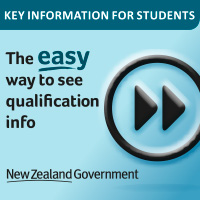
Qualifications are issued by Yoobee Colleges Ltd. Yoobee Colleges Ltd is an NZQA Category 1 provider, the highest rating a school can be awarded by the Government.
Term dates are subject to change pending enrolment numbers, availability and unforeseen funding fluctuations. Yoobee Colleges Ltd reserves the right to modify schedules to make sure the College runs well and students are offered the best learning experience.

Internships
Privacy Policy
Code of Practice for the Pastoral Care of ākonga/learners
Complaints and Annual Notification Report Register
Our Mission and Role
Our Schools
Charles Darwin University International College
International College of Hotel Management
NZ Tertiary College
Swinburne Open Australia
UP Education
UPIC Auckland University of Technology
UPIC Victoria University of Wellington
University of Auckland International College
University of Tasmania International Pathway College
Partnered with

© 2023 New Zealand School of Tourism is one of the trading names for the registered PTE Yoobee Colleges. Your enrolment is with Yoobee Colleges Ltd and your qualification is issued by Yoobee Colleges.

NEW ZEALAND DIPLOMA IN TOURISM AND TRAVEL
Diploma in Tourism and Travel offers a business management view of New Zealand’s travel and tourism industry, focusing on identifying opportunities and enhancing communication skills for future industry leaders..
30 HOURS PER WEEK
9am - 4pm i monday - thursday, class times are subject to change under the discretion of crown institute of studies.

COURSE OUTLINE
This diploma-level course provides a broad overview of the NZ tourism industry. Emphasis is placed on developing strong business and workplace management, as well as communication skills, allowing graduates to become leaders of the industry. Graduates will have excellent knowledge of tourism operations, these include business systems, commercial aviation, finance and budgeting, trends in the tourism environment and understand market changes in the industry.
Course Delivery Method:
Face to face in a classroom setting, with elements of blended online learning.
THE COURSE CONSISTS OF THE FOLLOWING MODULES
Effective communication in travel & tourism, nz tourism sector, region-by-region, trends in the international tourism environment, tourism venture improvements, finance and budgeting, commercial aviation, workplace management and personal work ethics, business systems development.
Students are assessed through a mixture of written assessments, presentations and practical role plays.
ADDITIONAL QUALIFICATIONS AVAILABLE (OPTIONAL):
• Crown Certificate in Cabin Crew • Pure New Zealand Specialist Certificate • Contiki Certificate • Blue Lagoon Cruises Certificate • Hawaii Tourism Certificate • Hong Kong Specialist Certificate • Tiare Tahiti Specialist Certificate • Pierre & Vacances Expert in Mountains in France Diploma • Online Travel Training (OTT) courses
COURSE TRIPS
All crown programmes include trips to relevant sites and destinations. these educational visits will allow you to interact with professionals in the industry and observe the work in the real work environment., upcoming intakes, 2024 course dates.
29 Apr 2024 - 11 Apr 2025
22 Jul 2024 - 27 Jun 2025
14 Oct 2024 - 19 Sep 2025
2025 COURSE DATES
3 Feb 2025 - 19 Jun 2025
10 Mar 2025 - 27 Feb 2026
28 Apr 2025 - 2 Apr 2026
21 Jul 2025 - 4 Jul 2026
13 Oct 2025 - 18 Sep 2026
2024 TERM BREAKS
14 Apr - 26 Apr 2024
7 Jul - 20 Jul 2024
30 Sep - 11 Oct 2024
2024 SUMMER BREAK
23 Dec 2024 – 3 Feb 2025
2025 TERM BREAKS
14 Apr - 25 Apr 2025
7 Jul - 18 Jul 2025
29 Sep - 10 Oct 2025
2025 SUMMER BREAK
22 Dec 2025 – 26 Jan 2026
entry requirements
Domestic student.
- 18 years of age at course start date.
- NCEA Level 3 or NZ Certificate in Travel level 4 or equivalent or at least one year work experience in the tourism or travel industries.
- Students who do not meet the entry requirements may be accepted at the discretion of the department head.
International student
- 18 years of age or older at course start date
- IELTS (General or Academic) 5.5 with no band lower than 5.0 (or NZQA approved equivalent)
- 3 years of secondary school or equivalent work experience
Study & Work Programme
Try our study & work service explore career paths, gain work experience and earn extra cash while you study. your choice to take advantage of this optional service..

What is included with Study & Work:
• Free professional training in employment skills and customer service from Function Staff, our Study and Work partners. • Paid part-time employment with Function Staff during your course. • Free 1-1 CV preparation, career advice and interview skills with Crown’s employment team. • A standard reference will be included at the end of your program.
Further STudy
Students who successfully complete this course may wish to continue their studies in any of the following:
If you successfully complete this course you may wish to continue your studies at degree level. You may be eligible for credits toward further study. Please ask us for details.
Career pathway, career options.

Employment Pathways
Find more employment options at Careers NZ
A qualification in this course can lead to great jobs such as:
Business Development Coordinator
Marketing & Promotions Coordinator
Travel & Trade Coordinator
Tourism Operations Supervisor
2024 COURSE FEES
Domestic students:.
Check your Fees Free Eligibility

International Students:
Tuition NZ $17,960, Material NZ $1,500,
Registration NZ $250

Worldwide School and Crown Institute collaborate closely to enhance each other’s educational services and offerings. The same education group owns the two schools and has partnered to create English & Vocational Study pathways and short-term internship programmes for many international students.
- 0800 357 316
- [email protected]
- 80 Anzac Avenue Auckland City 1010 New Zealand
Useful links
- Privacy Policy
- Terms and Conditions
- Refund Policy for Groups
- 2024 International Fees
- 2024 Domestic Fees
- Crown Institute Brochure
Student life
- Student Handbook
- Student Support
start another chapter of your journey
- Skip to Content
- Skip to Main navigation
- Tāwāhi International
- Oranga Tauira Student Life
- Rangahau Research
- Ākonga o Mua Alumni
- Ahumahi me ngā Kaiwhakawhiwhi Mahi Industry & employers
- Mō Mātou About
- Apply Enquire
- MyAUT Staff intranet
Master of International Tourism Management
Tourism is one of the leading industries in New Zealand and the world. With this 18-month international master’s degree you can progress your career further.
Choose from a wide range of courses on critical issues in tourism management from around the world, and research an area of interest supervised by world-renowned academics. Eduniveral Group has ranked our Master of International Tourism Management as the 13 th best master’s degree in the world for tourism.
Download programme guides
- AUT Prospectus (2025)
- Fees shown are based on a full-time workload for the points indicated next to the fee. The exact fee charged will depend on which courses you select at the time of enrolment.
- Fees are subject to change year to year. If you are planning for study beyond the current year, fees may vary from those stated.
- There may also be other fees and charges you need to pay .
- International students' tuition fees reflect the full cost of tuition. Domestic students' tuition fees are less due to a proportion of the tuition fees being funded by the New Zealand Government.
Indicative 2024 international fees
Scholarships

- Entry requirements
- What you study
- Career opportunities
- Related programmes
Minimum entry requirements
- Must have completed the Bachelor of International Tourism Management or other relevant degree, or an equivalent qualification with a B grade average or higher in courses at level 7
International student entry requirements
Other requirements
- May be required to submit examples of previous academic work or attend an interview
- May be required to submit evidence of ability to study at postgraduate level, and attend a selection interview
English language requirements
- IELTS (Academic) 6.5 overall with all bands 6.0 or higher; or equivalent
To complete the programme, you need 180 points. Your course selection depends on the research pathway option you take – thesis or dissertation. Through the variety of specialised courses, you'll enhance your knowledge and perception of tourism as both a discipline and an industry.
Choose one of the following
- TOUR999 MITM Thesis
- TOUR997 MITM Dissertation
Students need a B- average grade in coursework courses as a prerequisite into the research pathways. Your thesis/dissertation will be based on a topic of your choice, supervised by experienced academic staff. You can develop research expertise in a range of areas including tourism management, sustainability and tourist information.

And a 30-point research methodology course
- CLSY810 Qualitative Social Research Methods OR BUSS823 Qualitative Research Design and Analysis
- CLSY811 Quantitative Social Research Methods OR BUSS824 Quantitative Research Design and Analysis
And tourism courses
- TOUR801 Entrepreneurship and Innovation in Tourism, Hospitality and Events
- TOUR804 Consumer Perspectives in the Visitor Economy
- TOUR805 The South Pacific and Tourism
- TOUR806 Contemporary Topics in Tourism, Hospitality and Events
- TOUR807 Special Topic in Tourism
- TOUR808 Urban Tourism and Creative Placemaking
- TOUR809 Us and Others': Tourism, Ethnic Minorities, and Indigenous Peoples
- TOUR812 Sustainable Leadership in Hospitality, Tourism and Events
- TOUR814 Events and Leisure: Concepts, Practices, and Impacts
- TOUR815 Critical Tourism & Hospitality Perspectives
- TOUR818 Risk, Resilience and Crisis Management: Organisational and Destination Perspectives
Skills you will develop
The outcomes for graduates of the Master of International Tourism Management are outlined in the Graduate Profile below.
Graduate Profile
Education and research
- Doctoral study
- Research fellow
- Lecturers/tutors
Public sector
- Government agencies
- Destination marketing organisations/ Regional tourism organisations
- Local councils/boards
- Parks, sport, recreation & conservation
Private sector
- Strategy and leadership
- Operations management
- Media and communications
- Visitor management
- Customer care
- Product development
- Consultancy
Third Sector
- Non-governmental organisations
- Industry associations/trade organisations in tourism and hospitality
- UN agencies/organisations (including UNWTO)
- International development agencies
- Social enterprises
- Community leadership
- Conservation
Entrepreneurship
- Service/product innovations
- Business owner-operators
Other postgraduate study options
- Postgraduate Certificate in International Tourism Management
- Postgraduate Diploma in International Tourism Management
If you mainly want to complete advanced courses in tourism management, you can enrol directly in the postgraduate certificate or the postgraduate diploma. These programmes also cater for tourism professionals who want to enhance their understanding of industry issues.
Further study
- Doctor of Philosophy

The information on this page was correct at time of publication. For a comprehensive overview of AUT qualifications, please refer to the Academic Calendar .
You are using a very outdated browser, which means that some of the features may not work as intented. Please upgrade your browser to improve your experience.
Loading ...
The application is loading, please wait.
Study Tourism at Otago
It's about the journey and the destination.
Study tourism and gain all the right skills for a fun and fulfilling career in a re-energised industry.
Help re-establish one of New Zealand's largest industries.

Tourism teaches you about:
- the global principles that structure tourism
- the nature and operation of the tourism industry
- the impact, development and management of issues that arise in the industry
- hospitality, planning, managing and marketing
- destination management, tourist behaviour and tourism and hospitality enterprise management
Career opportunities
Tourism needs motivated, educated people who understand the wider environmental, social and economic issues affecting tourism businesses. With the broad business education gained by Otago graduates, you can work in:
- marketing co-ordinators
- events and meetings co-ordinators
- economic development officers
- accommodation and restaurant/business managers
- operation co-ordinators or managers
- museum curators
- tourism organisations – e.g. Tourism New Zealand
- tour guides and operators * Self-employed
- researchers, academics, policy makers and planners
- hotel management – sales and marketing, front office, reservations, revenue
- event management – business and corporate events, exhibitions and convention events, private events such as weddings and celebrations
- food and beverage management – sales, quality assurance, regional outlet management
- online travel company roles – market development, pricing and revenue, marketing and sales
“Graduates who studied across multi-divisional subject areas have a more systemic perspective and better critical thinking skills – they are more resilient and can contribute to multiple areas. We like that Otago graduates have made the decision to go out of their comfort zone and become independent by moving to Dunedin to study.” Saskia Verraes, GM Responsible Management, Tourism Holdings Ltd
Study options
Explore undergraduate study options, explore postgraduate study options.
EASTERN INSTITUTE OF TECHNOLOGY | Te Aho a Māui | New Zealand
0800 22 55 348 [email protected] | [email protected]
Studying at EIT | Te Pūkenga in 2024 Click here for more information about the recent Government announcement
- Tourism and Travel
NZ Certificate in Tourism (Level 3)
Hawke's Bay Campus Tairāwhiti Campus in Gisborne
Study Options
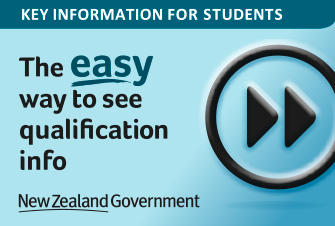
Get on board a fast growing global business
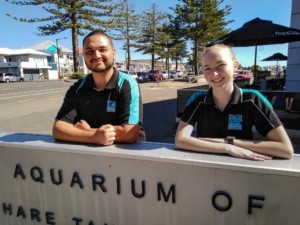
Melissa and Thomas have grabbed the first opportunity to start a career in tourism.
You will use your adventurous spirit and passion for customer service to guide people on their way to exploring and experiencing all New Zealand and the world has to offer. Our campus Travel Centre is set up to simulate a real-life travel agency and is used for role-plays between tourism provider and tourist.
The NZ Certificate in Tourism (Level 3) programme is offered with strands in both visitor experience and tourism and travel.
At the completion of the qualification, you will be ready for front line entry level positions in industry, under limited supervision, or further, higher level tourism study.
In particular, the programme is designed to develop skills to be able to:
- Apply knowledge of customer service and selling skills
- Apply tourism workplace practices
- Demonstrate knowledge of regional New Zealand
- Demonstrate a broad knowledge of the tourism and travel industry
- Apply knowledge and attributes required for a Barista role
You’re welcome to make an appointment to discuss your study options with our staff and arrange a visit to view our facilities.
Your future career and study opportunities
Your possible employment opportunities include:
- Attraction assistants
- Front office positions
- Ticket sales
- Reservations consultant
- Visitor host
- Booking assistant
- Rental vehicle operations
- Front desk administration
Your study pathway could progress onto:
- NZ Certificate in Tourism (Level 4)
- NZ Diploma in Tourism and Travel (Level 5)
There are two entry dates:
- February (Hawke’s Bay only)
- July (Tairāwhiti only)
Entry requirements
Entry criteria
Information sessions are provided for applicants and there may be individual interviews with tutors in cases where the application raises some doubt about the suitability of the programme for the applicant.
Open entry
- If the delegated authority at the campus/site is satisfied that the applicant has the capability to complete the requirements of the programme.
Recommendation
It is recommended that applicants complete unit or achievement standards related to geography, tourism and travel prior to enrolling in the programme.
English language entry requirements
If English is not your first language you are required to have attained an acceptable level of English language fluency. This may be demonstrated in a variety of ways, including successful study in English, completion of a New Zealand Certificate in English Language (Level 3), approved scores on IELTS tests (Academic score of 5.0 with no band score lower than 5), completion of accepted international equivalents from one test taken in the preceding two years, or an equivalent described in NZQA Rules.
Entry with credit
You may already have some knowledge or skills that can be recognised as part of your intended study. This may take a number of different forms including study while at high school, study at a private training establishment, workplace training or other tertiary study. If you think you may qualify, you may want to apply for Cross Credit (CC).
- CC is based in the equivalency of courses or qualifications. You would apply for CC if you have passed a very similar course at the same level.
You will be asked to provide details of anything that you would like to be considered as credit toward your intended programme of study, as part of your application.
You must apply prior to enrolment. CC cannot be awarded for a course if you are already enrolled in that course. An original transcript or notice of results from the institute at which you previously studied, (or verified copies) will be required for all applications.
For further information and enquiries about Cross Credit, please contact the Programme Coordinator, Nikki Lloyd, on 06 830 1172 or [email protected] .
Transfers/Cross Credits
This qualification has been approved by the New Zealand Qualifications Authority.
This programme leads to the award of a nationally approved qualification. This qualification may be delivered at a number of other tertiary institutes around New Zealand. If you were to transfer to one of those other institutes you may be granted academic credit for some of the papers completed but this is at the discretion of the other institute.
Please note: Fees are not transferable between institutes.
Academic learning services
Academic Learning Services is here to assist you on your journey towards the successful completion of your studies at EIT | Te Pūkenga. Our aim is for you to become confident, competent and independent learners.
We have dedicated advisors who can assist with your learning.
Find out more:
Hawke’s Bay Campus Tairāwhiti Campus
Scholarships

You can find a list of EIT | Te Pūkenga scholarships here however there are many more scholarships offered nationally. Information about these is on an database called “givME”. givME is accessible at EIT | Te Pūkenga or at some public libraries. If you would like to come to EIT | Te Pūkenga to look through the giveME database don’t hesitate to contact [email protected] or call in for a chat.
Insert/edit link
Enter the destination URL
Or link to existing content

Diploma in Adventure Tourism Management
For more information enquire today
- Intakes in January, April, July, October
As the iconic Adventure Tourism industry expands globally, so does the need for skilled and qualified managers. QRC’s Diploma in Adventure Tourism Management focuses on the operational and risk elements of running a successful and safe activity.
The key area of learning focuses on what is required to manage a business who provide thrills for those participating in activities. The industry exposure provided to students is unique given the location of Queenstown and the volume of activities in the region.
QRC creates ambassadors and skilled workforce capability for this growth sector by being the only provider of an Adventure Tourism Course in New Zealand AND the southern hemisphere.
Download Course Flyer
Programme at a glance
The Diploma programme consists of 2 terms (11 weeks each) on Campus, followed by a 9 month/1,000 hour internship, culminating with a final 2 terms on Campus.
The Diploma focuses on ensuring students are competent with service quality, operational intelligence, professionalism, cultural intelligence, visitor experience, product & business development, event planning, risk management and sustainability.
- 21 Months — QRC Diploma in Adventure Tourism Management
- Intakes in: January, April, July and October
- Graduates are awarded the New Zealand Diploma in Adventure Tourism Management (Level 6)
Term one is all about getting familiar with the adventure tourism industry here in Queenstown. Terms one and two form the most of the think it part of QRC’s learning process. Our Adventure Tourism Course consists of:
Term two builds on the hands-on learning from term one. After this term, you’ll be ready to tackle your fully paid 9-month internship in terms three and four!
The hands-on learning you will encounter during your internship in the field is invaluable – these are the skills and relationships that will kickstart your career in the industry.
Term four is usually focused more on honing the actual skills of the job rather than learning. This is the do it part of QRC’s unique learning process and gives you what you need in order to be it .
Term five builds on the practical experience gained during your internship and introduces the concepts in the tourism management field.
Term six is the culmination of the learning process and centres on the managerial skills needed to excel in a career in tourism. After this semester you’ll be it .
Did you know that you can complete a degree with as little as 7 months further study with one of QRC’s partner institutions?
See the pathways to further study →
Diploma of Adventure Tourism Management
By cultivating a world-class learning environment, QRC integrates both practical and theory to train the Adventure Tourism leaders of tomorrow. Blending the key aspects of service quality, operational intelligence, professionalism, cultural intelligence, visitor experience, product development, business development, event planning, risk management and sustainability throughout its papers. Study at one of the top tourism schools in New Zealand.
During their paid internship, students put theory into practice, create industry connections and prepare themselves for a career in the exciting world of Adventure Tourism. This Adventure Tourism Course in Queenstown, New Zealand is the perfect place to secure your dream job.
Career Opportunities
Graduates have the opportunity to work with small businesses through to multi-national adventure tourism companies. The Diploma prepares them for the tourism, eco-tourism and adventure tourism sectors. After graduating they can specialise in operations management, marketing, sales, eco-tourism, human resources, finance, training, business development and event planning.
On course completion, students will have the skills, knowledge and attitude required to work in a team leadership role, with the potential to advance through to a management role and the knowledge to establish their own business ventures. Start your Adventure Tourism Degree with QRC.

QRC graduates have a world of opportunities available to them. Most enter the workforce and maximise the networks gained at QRC, others choose a pathway on to a degree at one of QRC’s partner institutions. Those wishing to enter the workforce have the knowledge, skills, experience and attitude to attain a leadership role and progress to management. Adventure Tourism Course graduate success:
- 85% of graduates go on to work in their field of study
- 12% of students progress on to a degree
- Most students are offered a full-time role with their internship provider upon graduation
Pathways to Further Study
Otago University, New Zealand
- Bachelor of Commerce – 1 ½ year further study
- Bachelor of Commerce (Finance Major) – 2 ½ years further study
Thompson Rivers University, Canada
- Bachelor of Tourism Management – 2 years further study
International College of Management, Sydney, Australia
- Bachelor of Business – 7 months further study
- Bachelor of Business (Entrepreneurship) – 7 months further study
- Bachelor of Business (Marketing) – 7 months further study
- Bachelor of Business (Sports Management) – 7 months further study
- Bachelor of Business (International Tourism) – 7 months further study
- Bachelor of Event Management – 7 months further study
- Bachelor of Hospitality Management – 7 months further study

Internships, earn while you learn
QRC internships offer students an invaluable paid opportunity to gain workforce experience with our network of carefully chosen world-class industry operators, both in New Zealand and overseas.
- Earn while you learn
- Fully paid industry internship for 1,000 hours for Adventure Tourism Management
- Adventure Tourism Management students earn at least minimum wage during their internship
It offers a range of world-class industry operators in an environment where tourism and hospitality are “normalised” enabling students to become active participants and network in the industry.
Internships are an invaluable component to the Adventure Tourism course. Students work closely with their Internship Manager to identify where they would like to be placed.
With the assistance and in-depth knowledge of the Internship Manager, they will be placed in the industry to best match their interests and strengths to ensure that they continue to develop.
The fully paid internship provides a value for money component for the student. Due to the successful experience gained by students on their internship, a high proportion of students return to their internship employers after completing the programme.
The Internship Manager provides a direct link to industry and assists students in securing internship positions. QRC graduates are highly sought by industry and as a graduate they automatically become members of the QRC Alumni.
The Internship Manager offers post-graduate assistance and acts as a liaison between QRC Alumni and the tourism and hospitality industry.
Our students are employed for a minimum of 9 months and are required to achieve a minimum of 1,000 hours of work before they return to QRC for their second year of study. Flexibility for shorter or longer time periods can be agreed to upon discussion with all parties.
What to expect during your internship
As a student.
- No college commitments or assignments to worry about
- Be a real employee of the company
- Follow policies, procedures and guidelines
- Apply for the role just like any other job seeker would
- Present yourself to a high standard throughout
- It is up to the employer whether a full-time role results from the internship
From Your Employer
- Be treated the same as any other employee
- The chance to get in-house training and gain practical experience
- Guidance and support throughout
- A performance report after 3 months
- A final performance report at the end of the internship

What your internship could look like
Aj hackett bungy, queenstown.
“AJ Hackett is synonymous with Adventure Tourism around the world, and I am lucky enough to be working as part of the team here in Queenstown. I am training to eventually be responsible for the final launch of people off the bridge and I cannot wait! Being qualified in New Zealand as a Jump Master means I can work for AJ Hackett all over the world. AJ Hackett currently employ 24 QRC students; both interns and graduates. I love that my team leaders and managers are QRC graduates and have taken on a mentoring role for me and other interns. My time here at AJ Hackett is summed up by the fact that I actually don’t enjoy my days off, as I would rather be at work with my friends having a fantastic time. Risk and safety management is a huge part of what we do here, being at the forefront of our minds at all times. The Risk Management and Operations Management papers I completed in Terms 1 & 2 at QRC, provided me with the skills and understanding to deal with the realities of the industry. It also feels great being able to bring new ideas and energy to all aspects of the business. My goal once I complete my Diploma of Adventure Tourism Management is to return to work here at AJ Hackett, and to progress through to a Management level. It is such an exciting company with global development possibilities.”

My role here at AJ Hackett Bungy is working within the operations team as a Junior Jump Operator. I get to experience all aspects of the Bungy operation from start to finish, including customer service, making sure our customers are harnessed up and connected to the Bungy, then collecting them in the raft at the bottom once they have gone through with their jump! Jake McEwan Adventure Tourism Management
Entry Requirements
All applicants must be a minimum of 18 years of age at course commencement (some discretion applies for domestic enrolments). All applicants are interviewed as part of the admissions process.
NCEA (NZ National Certificate of Education Achievement) Level 2, including the following:
- 48 Level 2 (or higher) credits over 4 approved subjects* including 4 reading and 4 writing literacy credits
- Numeracy – 10 credits at level 1 or above
- Be at least 18 years of age at course commencement
Diploma in Hospitality Management or Diploma in Adventure Tourism Management
*Approved subjects – Click here to see the list.
Australian Students
- Successful completion of the Senior Secondary Qualification offered in your state (VCE, HSC, WACE, QCE, NTCE, TCE)
- ATAR – 50 or higher
- CIE & IB students please refer to the above
For a full list of International Academic Requirements click here.
Mature students may be exempt from meeting the academic entry requirements if they can demonstrate relevant work experience and genuine commitment to the industry, through their CV and work references.
All applicants are interviewed as part of the admissions process.
Recognition of Prior Learning (RPL) will be granted where your prior study or work experience is considered to be equivalent to all the learning outcomes for a particular QRC paper.
Students are required to supply their own laptop computer.
Apply Today
Enquire Now
Below are the domestic fees for our Adventure Tourism Management Diplomas. International Students see International Fees sheet for a detailed breakdown.
It is a requirement of the NZ Government that all year one fees are to be paid in advance before the issuing of a Student Visa. No deferred payment schemes are available. QRC’s Refund Policy can be found here .
Tuition fees are subject to annual increases.
To secure your place on the course you will need to pay a $700 deposit. $500 will be held as an Accommodation Bond if staying at the Halls of residence (this is refundable at the end of your stay). $200 will be applied as an administrative placement charge for the halls of residence 1 month prior to your course intake start date.
For students not residing at the halls of residence the $700 deposit will be applied to tuition fees
General Fees
Some courses and services accrue additional costs. All charges relating to your chosen course will be itemised on your Invoice. If you have any questions regarding General Fee charges, please email [email protected] .
- Travel & medical insurance for international students: from $71 per month, $242 per 6 months or $454 per year
Professional Excellence
All students are provided with a uniform which reflects the highest industry standards.
The professional appearance sets the tone for expectations around individuals taking responsibility for their own personal brand.
Our adventure tourism course Queenstown, produces graduates who are highly sought after by the international tourism, not only for their skills but for their consummate professionalism. Accordingly, the College practices the highest standards of personal and professional conduct at all times, equivalent to international best practice.
The QRC Professional Excellence (PE) system has been developed to encourage students to achieve the level of professionalism expected by the industry.

Every student starts the term with a maximum of 100 PE points. Ideally, this score is maintained throughout your studies. Incidents of unprofessional behaviour, for example unexplained absences, are reported to your programme leader and will incur a loss of PE points. Students who come close to the fail mark of 69 PE points, will be required to seek counselling from the Programme Leader or Academic Director and appropriate measures to remedy the behaviour will be discussed. A lack of improvement could result in suspension from the College. Further information about the QRC Professional Excellence system can be found in the program handbook.
You will be provided with a uniform which reflects the highest industry standards. For Adventure Tourism Management students this is a professional active wear
- 1 cotton T-shirt
- 1 merino polo shirt
- 1 long sleeve merino top with collar
- 1 soft shell jacket
- 1 pair of full length trousers
- 1 pair of shorts
Students are required to bring smart black sports shoes and black socks to accompany the uniform.
All Diploma students are required to complete 10 hours of community service as part of the diploma. During your time at QRC a number of opportunities will be presented to volunteer at community, college and charitable events. In the past opportunities have included: Winter Games, Queenstown Winter Festival, Jazz Festival, Queenstown Marathon and LUMA.
You might also be interested in
Graduate diploma in tourism and hospitality management, diploma in hospitality management.
- Information for Careers Advisors
- Ambassador Workshop
- Tourism and Hospitality Management Graduate Diploma
- Hospitality Management Diploma
- Adventure Tourism Management Diploma
- Tourism Operations Certificate
- Certificate in Hospitality Service
- Certificate in Machine Learning Fundamentals
- Careers Adviser Resources
- Queenstown Facebook YouTube Instagram
- Tai Tokerau Facebook YouTube Instagram
- Call Us 0800 441 114
- Email Us Enquire Today
- Study With Us Apply Today

Gain experience in the travel, airline and business, all from home. Start anytime!
- Information Session
- ITC and Fees Free
- ITC and Industry
- ITC Upskill4FREE
- International Exchange Programs
- Employment Consultants
- Staff Profiles
- Online Orientation
- Study From Home Tips
- Student Success
- Job opportunities
- Courses overview
- New Zealand Certificate in Tourism Level 3
- New Zealand Certificate in Tourism with a strand in Aviation Level 3
- New Zealand Certificate in Travel Level 4
- New Zealand Diploma in Tourism and Travel Level 5
- 2 Year Business In Tourism Diploma
- ITC Online Training Short Courses
- Computer Reservations Systems Course
- Graduate career profiles
- Student feedback

Stay up to date
Study in your own place, at your own pace.
We are a Fees Free provider for eligible candidates. Our friendly team support leaners with their Fees Free & Application process.
Gain an airline, travel or tourism qualification from the comfort of your own home. The International Travel College of New Zealand’s Study From Home courses are your ticket to an exciting new career. Jobs in the airline, travel and tourism industries are full of challenge and fun. We can help you find your dream role with our award-winning training, qualifications and support.
If you need more information about us then please click the below INFO Booklet.
ITC INFO Booklet
At ITC we cover all the bases. 3 campus locations for our ITC Tourism & Aviation Qualifications. Study From Home for those who cannot reach a campus and an incredible Study From Work option to learning and development in the workplace.
- Auckland City
- South Auckland (Botany)
- Study From Work – NZQA recognised personal development for ANY workplace

Already enrolled with us? ITC Online is our education portal website that you will use to complete your travel and tourism education. If you are already enrolled, you can login using the link below.
- Login to ITC Online
Study From Home Blog
What is it really like to Study From Home? Read our blog for tips, college news, student success stories and so much more! Simply follow the link below to read our latest story.
Success Stories
Check out what past and current students have to say about our distance learning courses and how studing travel and tourism from home with ITC has worked for them.
- View Student feedback
- View Graduate Career Profiles
Google Reviews
ITC Study from home videos:

0800 868 747
Phone & fax numbers.
Outside NZ: 00 64 9 373 5510 Fax within NZ: 09 273 7146 Fax outside NZ: 00 64 9 273 7146
Postal address
The International Travel College, Level 1, The Pavillions, Botany Town Centre, Chapel Road, East Tamaki.
About Study from home
- Graduation events
- Inspiration and motivation
- Tourism Spotlight
- Whats it like to study from home?
- ITC in the community
- ITC in Schools
Career options
- Job placement opportunities
Study at home course options
- 2015 Courses overview
- National Certificate in Tourism Level 3
- National Certificate in Aviation Core Skills Level 3
- National Certificate in Tourism Core Skills Level 3
- NZ Certificate in Travel Level 4
- ITC Online Training
SUCCESS STORIES

Become a Flight Attendant, work at Disney or Camp America! Your dream career starts here! Enrolling NOW!

- College facilities
- Employment Consultants
- Field Trips
- Gateway, STAR and High School Resources
- Industry & ITC
- ITC Whanau Portal
- Information Session
- International Exchange Programs
- International Student Experiences
- ITC Online Training
- Study From Home
- Student Information
- Study Options
- Auckland City Campus
- South Auckland Campus
- Whangarei Campus (North Tec)
- ITC Free Events
- In the Community
- Student success
- Current job vacancies – ITC students and graduates
- Disney Cultural Exchange Program
- Careers at the Airport
- Careers with Airlines
- Careers in Tourism & Travel
- Graduate career profiles
- Student feedback
- About studying in Auckland
- Why study at ITC?
- How to enrol from overseas
- Frequently Asked Questions
- Pre-Departure Information
- International Prospectus
- International Student Enquiries
- International Agents
- Information in other languages

- ITC Business of Tourism Academy’s
- Courses Overview
- New Zealand Certificate in Tourism with a strand in Aviation Level 3
- New Zealand Certificate in Tourism with a strand in Tourism and Travel Level 3
- New Zealand Certificate in Travel Level 4
- New Zealand Diploma in Tourism and Travel Level 5
- Diploma in International Tourism and Travel Management Level 5
- 2 Year Business In Tourism Diploma
- STAR, Gateway and High School Resources
- Pathways to further study
- Cabin Crew Online
- Cruise Online
- Ground Crew Online
- Tour Guiding Online
Stay up to date
Your exciting new career starts here.
We are a Fees Free provider for eligible candidates. Our friendly team support leaners with their Fees Free & Application process.
The International Travel College of New Zealand (ITC) is a premium supplier of training courses for the airline, airport, travel and tourism industries. Founded in 1996, ITC has been helping students achieve their career goals for over 27 years . All ITC courses at levels 3, 4, and 5 cover a range of qualifications in the travel, tourism, and aviation industries. Study on campus, Monday to Thursday schedule with study times, running from 9am until 2.30pm each day. We have flexible learning options to help with study-life balance.
Careers in airline, airport, travel and tourism and full of excitement, challenge and fun. In order to get these types of jobs you’ll need a relevant qualification. ITC can provide you with the skills and experience to find the job of your dreams.
At ITC we cover all the bases. 3 campus locations for our ITC Tourism & Aviation Qualifications. Study From Home for those who cannot reach a campus and an incredible Study From Work option to learning and development in the workplace.
Talk to one of our friendly team or arrange a time to come in and see our campus, discuss course options or show a friend or family member around, please do not hesitate to contact us or book a FREE Information Session .
- Auckland City
- South Auckland (Botany)
- Study From Work – NZQA Qualifications for ANY workplace
ABOUT ITC – BROCHURE

Next event: Campus Tours & Enrolling NowCome along to one of our FREE fun events to find out what an exciting career in airline, travel, and tourism is like for yourself.
- See all event dates
ITC in Schools
It’s our vision to inspire students all over New Zealand with quality education. We support schools by providing short courses, a Gateway workbook and teacher resources via paper based and online workbooks.
- Find out more
ITC job opportunities
Jobs get sent to us by employers in the airline, travel and tourism industries. These job opportunities are open to all ITC students and graduates.
Google Reviews
Airport Training Centre & Aircraft Cabin
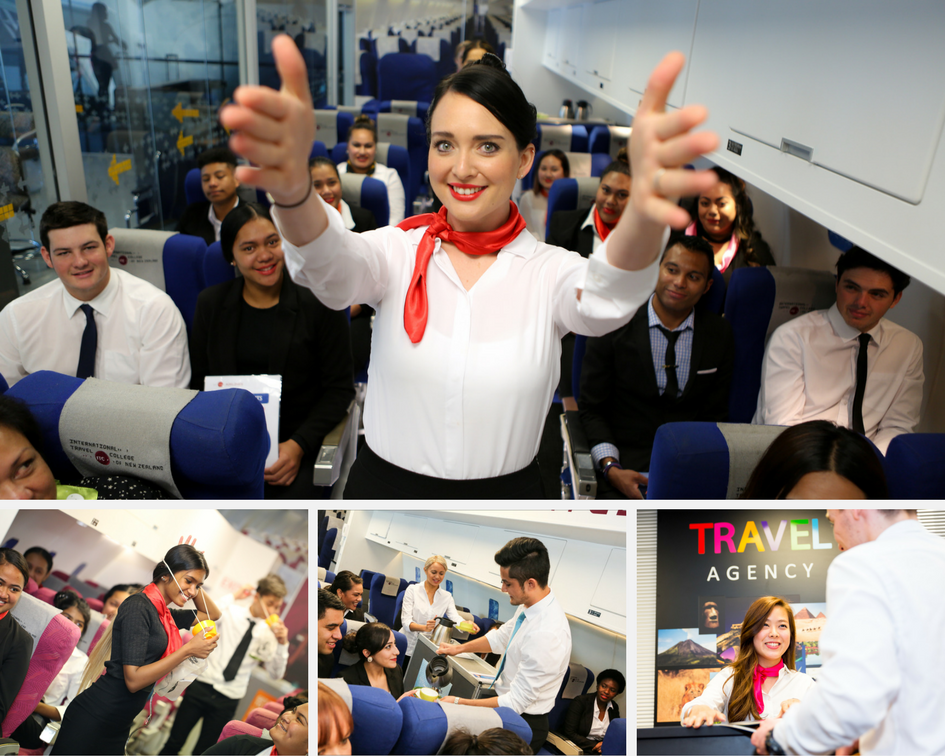
Site Trips, Familiarisation & Industry Speakers

ITC videos:
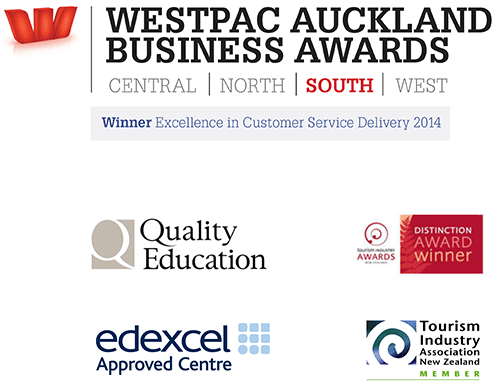
0800 868 747
Level 4, ITC House, 9 City Road, Auckland Phone: 00 64 9 373 5510
Level 1, The Pavilions, Botany Town Centre, Chapel Road, Auckland Phone: 00 64 9 279 3525
Whangarei Campus
North Tec, 51 Raumanga Valley Road, Whangarei Phone: 00 64 9 373 5510
- Careers at ITC
- Fees Free Options
- ITC Student Information
- Staff Profiles
- Media Releases
- ITC and industry
- Study inspiration
- Travel and Tourism News
Campus Locations
Career options, success stories, course options, international students.
Winter 2024: Travel data shows where Kiwis want to holiday most during the chilly season
Newly released travel data has revealed where New Zealanders most want to travel this winter - and some of the results may surprise you.
Queenstown is the most popular location overall followed by the Gold Coast, according to accommodation search data released by Booking.com, while Australia is the country people in Aotearoa are most interested in flying to.
China is the third most popular choice among Kiwi families as per the website's airfare search data, with a massive increase of 165 percent on last year.
Within Aotearoa it's common for Queenstown to top such lists, but Hamilton, Auckland and Kaikōura have each made significant jumps in popularity as winter destinations compared to 2023's data.
More from Newshub
To produce the data, Booking.com mapped search sessions conducted in New Zealand in April with check-in dates between June and August, as well as flight searches for trips including at least one child from January through to March for departure dates between June 1 - September 1.
As a competitor with the likes of Expedia and Kayak, Booking.com is a reservation service for accommodation, flights, car hire and select attractions.
If you're planning a holiday during the chilly season, more of the data is displayed below to help you either avoid or join the crowds.
New Zealand total domestic and international accommodation searches:
- Christchurch
New Zealand domestic accommodation searches:
- Auckland - 30 percent increase
- Christchurch
- Hanmer Springs
- Hamilton - 20 percent increase
- Lake Tekapo
- New Plymouth
- Mount Maunganui
- Palmerston North
- Kaikōura - 25 percent increase.
New Zealand international accommodation searches:
- Seminyak - 40 percent increase
- Nadi - 30 percent increase
New Zealand flight searches - winter destination countries for families:
- New Zealand
- China - 165 percent increase
- Cook Islands
- Philippines
- Germany - 75 percent increase.


Published: 5 April 2024 Contributors: Tim Mucci, Cole Stryker
Big data analytics refers to the systematic processing and analysis of large amounts of data and complex data sets, known as big data, to extract valuable insights. Big data analytics allows for the uncovering of trends, patterns and correlations in large amounts of raw data to help analysts make data-informed decisions. This process allows organizations to leverage the exponentially growing data generated from diverse sources, including internet-of-things (IoT) sensors, social media, financial transactions and smart devices to derive actionable intelligence through advanced analytic techniques.
In the early 2000s, advances in software and hardware capabilities made it possible for organizations to collect and handle large amounts of unstructured data. With this explosion of useful data, open-source communities developed big data frameworks to store and process this data. These frameworks are used for distributed storage and processing of large data sets across a network of computers. Along with additional tools and libraries, big data frameworks can be used for:
- Predictive modeling by incorporating artificial intelligence (AI) and statistical algorithms
- Statistical analysis for in-depth data exploration and to uncover hidden patterns
- What-if analysis to simulate different scenarios and explore potential outcomes
- Processing diverse data sets, including structured, semi-structured and unstructured data from various sources.
Four main data analysis methods – descriptive, diagnostic, predictive and prescriptive – are used to uncover insights and patterns within an organization's data. These methods facilitate a deeper understanding of market trends, customer preferences and other important business metrics.
IBM named a Leader in the 2024 Gartner® Magic Quadrant™ for Augmented Data Quality Solutions.
Structured vs unstructured data
What is data management?
The main difference between big data analytics and traditional data analytics is the type of data handled and the tools used to analyze it. Traditional analytics deals with structured data, typically stored in relational databases . This type of database helps ensure that data is well-organized and easy for a computer to understand. Traditional data analytics relies on statistical methods and tools like structured query language (SQL) for querying databases.
Big data analytics involves massive amounts of data in various formats, including structured, semi-structured and unstructured data. The complexity of this data requires more sophisticated analysis techniques. Big data analytics employs advanced techniques like machine learning and data mining to extract information from complex data sets. It often requires distributed processing systems like Hadoop to manage the sheer volume of data.
These are the four methods of data analysis at work within big data:
The "what happened" stage of data analysis. Here, the focus is on summarizing and describing past data to understand its basic characteristics.
The “why it happened” stage. By delving deep into the data, diagnostic analysis identifies the root patterns and trends observed in descriptive analytics.
The “what will happen” stage. It uses historical data, statistical modeling and machine learning to forecast trends.
Describes the “what to do” stage, which goes beyond prediction to provide recommendations for optimizing future actions based on insights derived from all previous.
The following dimensions highlight the core challenges and opportunities inherent in big data analytics.
The sheer volume of data generated today, from social media feeds, IoT devices, transaction records and more, presents a significant challenge. Traditional data storage and processing solutions are often inadequate to handle this scale efficiently. Big data technologies and cloud-based storage solutions enable organizations to store and manage these vast data sets cost-effectively, protecting valuable data from being discarded due to storage limitations.
Data is being produced at unprecedented speeds, from real-time social media updates to high-frequency stock trading records. The velocity at which data flows into organizations requires robust processing capabilities to capture, process and deliver accurate analysis in near real-time. Stream processing frameworks and in-memory data processing are designed to handle these rapid data streams and balance supply with demand.
Today's data comes in many formats, from structured to numeric data in traditional databases to unstructured text, video and images from diverse sources like social media and video surveillance. This variety demans flexible data management systems to handle and integrate disparate data types for comprehensive analysis. NoSQL databases , data lakes and schema -on-read technologies provide the necessary flexibility to accommodate the diverse nature of big data.
Data reliability and accuracy are critical, as decisions based on inaccurate or incomplete data can lead to negative outcomes. Veracity refers to the data's trustworthiness, encompassing data quality, noise and anomaly detection issues. Techniques and tools for data cleaning, validation and verification are integral to ensuring the integrity of big data, enabling organizations to make better decisions based on reliable information.
Big data analytics aims to extract actionable insights that offer tangible value. This involves turning vast data sets into meaningful information that can inform strategic decisions, uncover new opportunities and drive innovation. Advanced analytics, machine learning and AI are key to unlocking the value contained within big data, transforming raw data into strategic assets.
Data professionals, analysts, scientists and statisticians prepare and process data in a data lakehouse, which combines the performance of a data lakehouse with the flexibility of a data lake to clean data and ensure its quality. The process of turning raw data into valuable insights encompasses several key stages:
- Collect data: The first step involves gathering data, which can be a mix of structured and unstructured forms from myriad sources like cloud, mobile applications and IoT sensors. This step is where organizations adapt their data collection strategies and integrate data from varied sources into central repositories like a data lake, which can automatically assign metadata for better manageability and accessibility.
- Process data: After being collected, data must be systematically organized, extracted, transformed and then loaded into a storage system to ensure accurate analytical outcomes. Processing involves converting raw data into a format that is usable for analysis, which might involve aggregating data from different sources, converting data types or organizing data into structure formats. Given the exponential growth of available data, this stage can be challenging. Processing strategies may vary between batch processing, which handles large data volumes over extended periods and stream processing, which deals with smaller real-time data batches.
- Clean data: Regardless of size, data must be cleaned to ensure quality and relevance. Cleaning data involves formatting it correctly, removing duplicates and eliminating irrelevant entries. Clean data prevents the corruption of output and safeguard’s reliability and accuracy.
- Analyze data: Advanced analytics, such as data mining, predictive analytics, machine learning and deep learning, are employed to sift through the processed and cleaned data. These methods allow users to discover patterns, relationships and trends within the data, providing a solid foundation for informed decision-making.
Under the Analyze umbrella, there are potentially many technologies at work, including data mining, which is used to identify patterns and relationships within large data sets; predictive analytics, which forecasts future trends and opportunities; and deep learning , which mimics human learning patterns to uncover more abstract ideas.
Deep learning uses an artificial neural network with multiple layers to model complex patterns in data. Unlike traditional machine learning algorithms, deep learning learns from images, sound and text without manual help. For big data analytics, this powerful capability means the volume and complexity of data is not an issue.
Natural language processing (NLP) models allow machines to understand, interpret and generate human language. Within big data analytics, NLP extracts insights from massive unstructured text data generated across an organization and beyond.
Structured Data
Structured data refers to highly organized information that is easily searchable and typically stored in relational databases or spreadsheets. It adheres to a rigid schema, meaning each data element is clearly defined and accessible in a fixed field within a record or file. Examples of structured data include:
- Customer names and addresses in a customer relationship management (CRM) system
- Transactional data in financial records, such as sales figures and account balances
- Employee data in human resources databases, including job titles and salaries
Structured data's main advantage is its simplicity for entry, search and analysis, often using straightforward database queries like SQL. However, the rapidly expanding universe of big data means that structured data represents a relatively small portion of the total data available to organizations.
Unstructured Data
Unstructured data lacks a pre-defined data model, making it more difficult to collect, process and analyze. It comprises the majority of data generated today, and includes formats such as:
- Textual content from documents, emails and social media posts
- Multimedia content, including images, audio files and videos
- Data from IoT devices, which can include a mix of sensor data, log files and time-series data
The primary challenge with unstructured data is its complexity and lack of uniformity, requiring more sophisticated methods for indexing, searching and analyzing. NLP, machine learning and advanced analytics platforms are often employed to extract meaningful insights from unstructured data.
Semi-structured data
Semi-structured data occupies the middle ground between structured and unstructured data. While it does not reside in a relational database, it contains tags or other markers to separate semantic elements and enforce hierarchies of records and fields within the data. Examples include:
- JSON (JavaScript Object Notation) and XML (eXtensible Markup Language) files, which are commonly used for web data interchange
- Email, where the data has a standardized format (e.g., headers, subject, body) but the content within each section is unstructured
- NoSQL databases, can store and manage semi-structured data more efficiently than traditional relational databases
Semi-structured data is more flexible than structured data but easier to analyze than unstructured data, providing a balance that is particularly useful in web applications and data integration tasks.
Ensuring data quality and integrity, integrating disparate data sources, protecting data privacy and security and finding the right talent to analyze and interpret data can present challenges to organizations looking to leverage their extensive data volumes. What follows are the benefits organizations can realize once they see success with big data analytics:
Real-time intelligence
One of the standout advantages of big data analytics is the capacity to provide real-time intelligence. Organizations can analyze vast amounts of data as it is generated from myriad sources and in various formats. Real-time insight allows businesses to make quick decisions, respond to market changes instantaneously and identify and act on opportunities as they arise.
Better-informed decisions
With big data analytics, organizations can uncover previously hidden trends, patterns and correlations. A deeper understanding equips leaders and decision-makers with the information needed to strategize effectively, enhancing business decision-making in supply chain management, e-commerce, operations and overall strategic direction.
Cost savings
Big data analytics drives cost savings by identifying business process efficiencies and optimizations. Organizations can pinpoint wasteful expenditures by analyzing large datasets, streamlining operations and enhancing productivity. Moreover, predictive analytics can forecast future trends, allowing companies to allocate resources more efficiently and avoid costly missteps.
Better customer engagement
Understanding customer needs, behaviors and sentiments is crucial for successful engagement and big data analytics provides the tools to achieve this understanding. Companies gain insights into consumer preferences and tailor their marketing strategies by analyzing customer data.
Optimized risk management strategies
Big data analytics enhances an organization's ability to manage risk by providing the tools to identify, assess and address threats in real time. Predictive analytics can foresee potential dangers before they materialize, allowing companies to devise preemptive strategies.
As organizations across industries seek to leverage data to drive decision-making, improve operational efficiencies and enhance customer experiences, the demand for skilled professionals in big data analytics has surged. Here are some prominent career paths that utilize big data analytics:
Data scientist
Data scientists analyze complex digital data to assist businesses in making decisions. Using their data science training and advanced analytics technologies, including machine learning and predictive modeling, they uncover hidden insights in data.
Data analyst
Data analysts turn data into information and information into insights. They use statistical techniques to analyze and extract meaningful trends from data sets, often to inform business strategy and decisions.
Data engineer
Data engineers prepare, process and manage big data infrastructure and tools. They also develop, maintain, test and evaluate data solutions within organizations, often working with massive datasets to assist in analytics projects.
Machine learning engineer
Machine learning engineers focus on designing and implementing machine learning applications. They develop sophisticated algorithms that learn from and make predictions on data.
Business intelligence analyst
Business intelligence (BI) analysts help businesses make data-driven decisions by analyzing data to produce actionable insights. They often use BI tools to convert data into easy-to-understand reports and visualizations for business stakeholders.
Data visualization specialist
These specialists focus on the visual representation of data. They create data visualizations that help end users understand the significance of data by placing it in a visual context.
Data architect
Data architects design, create, deploy and manage an organization's data architecture. They define how data is stored, consumed, integrated and managed by different data entities and IT systems.
IBM and Cloudera have partnered to create an industry-leading, enterprise-grade big data framework distribution plus a variety of cloud services and products — all designed to achieve faster analytics at scale.
IBM Db2 Database on IBM Cloud Pak for Data combines a proven, AI-infused, enterprise-ready data management system with an integrated data and AI platform built on the security-rich, scalable Red Hat OpenShift foundation.
IBM Big Replicate is an enterprise-class data replication software platform that keeps data consistent in a distributed environment, on-premises and in the hybrid cloud, including SQL and NoSQL databases.
A data warehouse is a system that aggregates data from different sources into a single, central, consistent data store to support data analysis, data mining, artificial intelligence and machine learning.
Business intelligence gives organizations the ability to get answers they can understand. Instead of using best guesses, they can base decisions on what their business data is telling them — whether it relates to production, supply chain, customers or market trends.
Cloud computing is the on-demand access of physical or virtual servers, data storage, networking capabilities, application development tools, software, AI analytic tools and more—over the internet with pay-per-use pricing. The cloud computing model offers customers flexibility and scalability compared to traditional infrastructure.
Purpose-built data-driven architecture helps support business intelligence across the organization. IBM analytics solutions allow organizations to simplify raw data access, provide end-to-end data management and empower business users with AI-driven self-service analytics to predict outcomes.

IMAGES
VIDEO
COMMENTS
Welcome to The New Zealand School of Tourism. Whether you're keen on a career in travel and tourism, flight attending, travel operations, or you just want to get out into the world, you won't be stuck in a classroom when you study with New Zealand School of Tourism. Our courses teach you valuable skills in an environment that supports you ...
17 Universities in New Zealand offering Travel and Tourism degrees and courses. Plan your studies abroad now. ... View 11 Travel and Tourism courses. 9887. Views. 88. Favourites. Reviews (7) courses University of Canterbury New Zealand. THE World Ranking: 501. View 1 Travel and Tourism courses ...
The New Zealand Diploma in Tourism and Travel (Level 5) is a one-year qualification for students wanting to enter the work force as soon as possible. It comprises seven courses, and provides an entry-level basis for further study as part of a career development plan. Study a Hospitality Management Diploma as a pathway into the Bachelor of Business.
INTERNSHIPS AVAILABLE. Diploma in Tourism & Travel Management. Level 5. 32 weeks. This programme includes modules in tourism marketing, sustainability in tourism, as well as a case-study on Disney World. Meaning you'll have heaps of fun while you learn how to channel your passion for tourism into a career. Enrol now.
We offer the New Zealand Certificate in Tourism (Level 3) with a Tourism and Travel strand and the New Zealand Certificate in Travel Level 4. Through these qualifications you will become confident and capable of creating itineraries for business and holiday travellers with computer training using the latest software systems.
Join Crown and study Tourism and Travel. Gain insider knowledge, discover the best destinations, and secure amazing deals for your clients. Courses available. NZ CERTIFICATE IN TRAVEL LEVEL 4. NZ DIPLOMA IN TOURISM AND TRAVEL LEVEL 5. Our dedicated team supports you throughout your journey, preparing you for a successful career.
The New Zealand Certificate in Tourism with a strand in Tourism and Travel is an excellent introduction to the exciting tourism industry. There are so many exciting areas of the industry to discover, such as travel agencies, flight attending, airlines, airport, hotels, cultural and adventure tourism - just to name a few. Course features
Covering communication & marketing, environmental sustainability, Maori culture and creating a world-class visitor experience, this course puts you in the best position to take your pick of tourism jobs. You will learn. All about the tourism and travel industry; Communication and marketing; Strategic leadership; Creating the visitor experience
After 12 months of study: New Zealand Certificate in Travel (Level 4) (awarded by NorthTec | Te Pukenga) What you will learn. The course includes a high level of practical activities, such as roleplays and industry visits, to best prepare you for the workforce. There is also a full programme of field visits and guest speakers.
COURSE OUTLINE. This diploma-level course provides a broad overview of the NZ tourism industry. Emphasis is placed on developing strong business and workplace management, as well as communication skills, allowing graduates to become leaders of the industry. Graduates will have excellent knowledge of tourism operations, these include business ...
The New Zealand Diploma in Tourism and Travel (Level 5) is a one-year qualification for students wanting to enter the work force as soon as possible. It comprises seven courses, and provides an entry-level basis for further study as part of a career development plan. Study a Hospitality Management Diploma as a pathway into the Bachelor of Business
Tourism business operations. Risk analysis and management. Engaging with the tourism industry. Delivering exceptional customer service. Plus loads more! You will also get the chance to experience a fun-filled study tour, as well as gain exposure to international internship opportunitie. Careers in Travel & Tourism. Front desk agent. Tour guide ...
Master of International Tourism Management. Tourism is one of the leading industries in New Zealand and the world. With this 18-month international master's degree you can progress your career further. Choose from a wide range of courses on critical issues in tourism management from around the world, and research an area of interest ...
The 1 Year Diploma in Tourism and Travel Level 5 provides graduates with the skills and knowledge to prepare them for a general management career, majoring in Aviation, Travel and Tourism. The course focuses on skills in human resource management, marketing, strategic planning, research, finance, legislation and information technology, all of ...
The tourism industry needs skilled people to ensure innovative development that will support a sustainable future. Tourism is a diverse industry, so our Tourism Management graduates work in a variety of sectors. In the private sector, you might occupy a management role in hospitality, transport, attractions, conservation, education, or marketing.
Tourism teaches you about: the global principles that structure tourism. the nature and operation of the tourism industry. the impact, development and management of issues that arise in the industry. hospitality, planning, managing and marketing. destination management, tourist behaviour and tourism and hospitality enterprise management.
The NZ Certificate in Tourism (Level 3) programme is offered with strands in both visitor experience and tourism and travel. At the completion of the qualification, you will be ready for front line entry level positions in industry, under limited supervision, or further, higher level tourism study. In particular, the programme is designed to ...
Diploma in Adventure Tourism Management. $13,917 *. $13,917 *. To secure your place on the course you will need to pay a $700 deposit. $500 will be held as an Accommodation Bond if staying at the Halls of residence (this is refundable at the end of your stay). $200 will be applied as an administrative placement charge for the halls of residence ...
The International Travel College of New Zealand specialises in excellence in tertiary training courses and education for the airline, travel and tourism industries. Registered and accredited with NZQA and Ministry of Education, a world class college (ISO accreditated)., Airline, Travel and Tourism training offers excitement, challenge, and unmatched career opportunities.
The International Travel College of New Zealand (ITC) is a premium supplier of training courses for the airline, airport, travel and tourism industries. Founded in 1996, ITC has been helping students achieve their career goals for over 27 years . All ITC courses at levels 3, 4, and 5 cover a range of qualifications in the travel, tourism, and ...
Queenstown is highly desired, of course, ... NZ's 'keenest travellers', 2023 travel trends, 2024 predictions revealed in new report ... New Zealand flight searches - winter destination countries ...
The main difference between big data analytics and traditional data analytics is the type of data handled and the tools used to analyze it. Traditional analytics deals with structured data, typically stored in relational databases.This type of database helps ensure that data is well-organized and easy for a computer to understand.